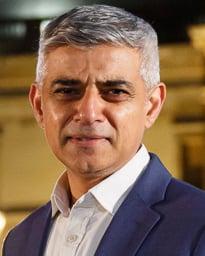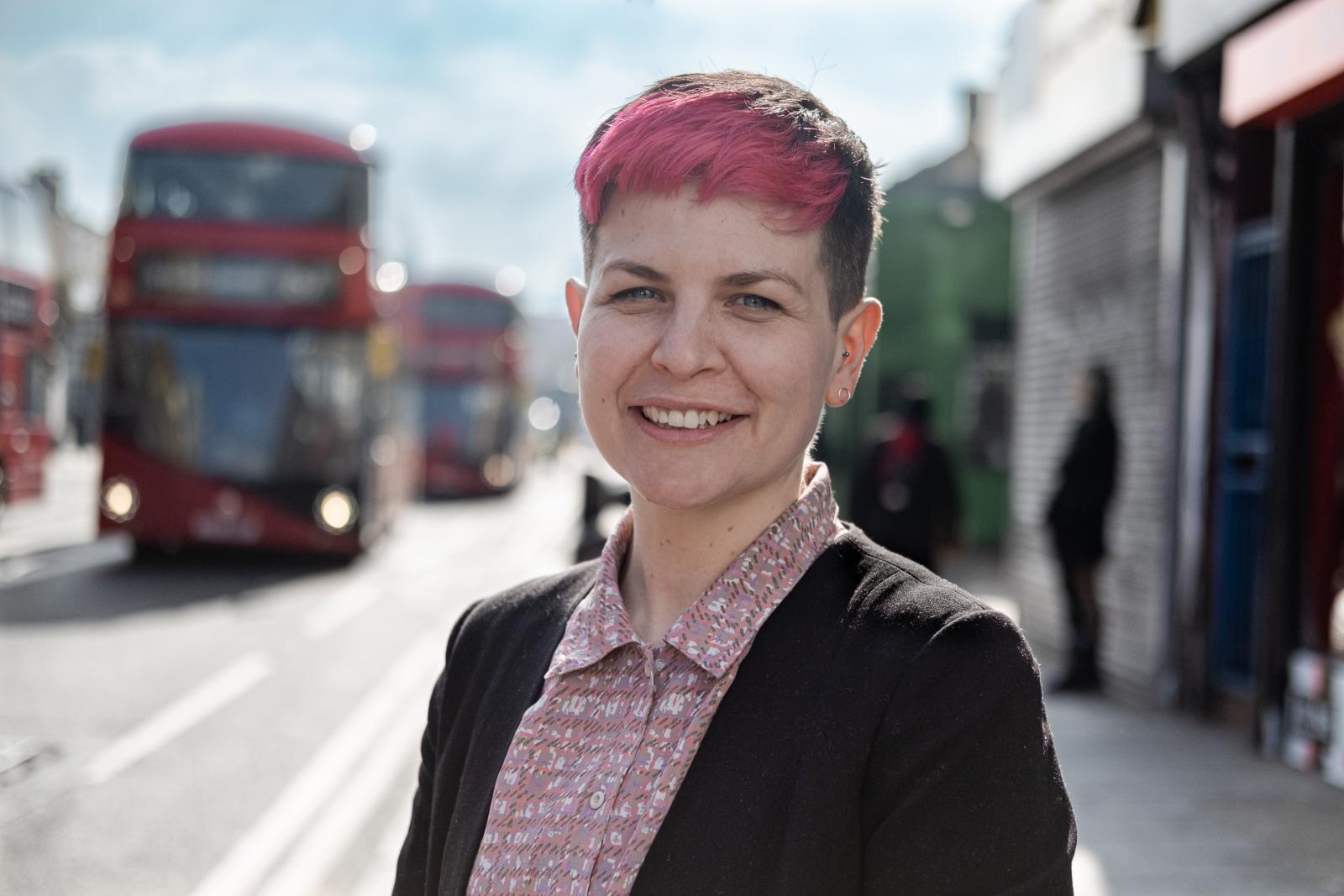The London Mayoral Election is coming up and we want to make sure your voice is heard.
The outcome of the London Mayoral Election will directly influence local policies and initiatives that impact your experience at UCL, as well as the London wider community. By voting, you can advocate for policies that support your needs and priorities.
Remember:
- Make a plan to vote on Thursday 2 May
Who's standing for election?
The frontrunners from the four largest parties...

Labour Party: Sadiq Khan 
Conservative Party: Susan Hall 
- Green Party: Zoe Garbett

- Liberal Democrats: Rob Blackie
All candidates, alphabetically by party name
- Conservative Party: Susan Hall
- Green Party: Zoe Garbett
- Independent: Shyam Batra
- Independent: Count Binface
- Independent: Natalie Campbell
- Independent: Tarun Ghulati
- Independent: Andreas Michli
- Labour Party: Sadiq Khan
- Liberal Democrats: Rob Blackie
- London Real Party: Brian Rose
- Reform UK: Howard Cox
- Social Democratic Party: Amy Gallagher
What do we want the next Mayor of London to do?
Students are a key part of the London community and especially in light of the current Cost of Living pressures, we are asking the new Mayor of London to implement the following:
- Free bus travel for students.
- Treat students like other groups in society who are not in work - pensioners currently enjoy the 66+ Freedom Pass with free and discounted travel, extend this benefit to students too.
- The cost of all tube journeys to be the same as Zone 1 fees for students.
- Students are living further and further away from their campuses, priced out of traditional student areas by rising rents. The 18+ Student Oyster Card should cap all fares for students at the price of Zone 1 travel, helping students fund affordable housing without incurring additional costs.
- The Santander Cycles discount increased to 50%.
- Students currently receive a 25% discount on annual subscriptions, this should be increased to 50% and expanded to cover pay-as-you-go travel, monthly cycle hire and annual cycle hire costs.
- Rent caps in London for private halls and homes.
- In February 2023, our Union Executive also passed a policy to support Sadiq Khan’s campaign for a London-wide rent freeze.
- Set up a Student London Assembly.
- Students should have a voice on decisions that affect them in London, just like other groups. The London Student Assembly would bring together representatives from students' unions across London.
Read on to find out if you’re eligible to vote, how you can register, and how to vote.
Am I eligible to vote?
You can vote in the London mayoral and London Assembly elections if you:
- Are registered to vote.
- Are at least 18 years old on the day of the election.
- Are a British citizen, a European Union citizen or a Commonwealth citizen who has permission to enter or stay in the UK, or who does not need permission.
- Live in one of the 14 London constituencies.
You can check if you’re eligible to vote on The Electoral Commission website.
All Londoners who are registered to vote will receive an information booklet in the post in April. This booklet will include mini-manifestos from the Mayoral candidates, lists of candidates/parties standing in the London Assembly elections and information on how to vote.
How do I vote?
You can vote locally in person (either near your student accommodation, or at home), by post, or by proxy.
Voting Day: Thursday 2 May 2024
Voting in person:
- Find out which polling station you need to go. This will be on your polling card (that will be sent to your registered address). You don’t need to take your polling card with you when you vote but it helps.
- In order to vote, you must show photo ID. You only need to show one form of photo ID, but it must be the original version and not a photocopy. Photocopies will not be accepted.
- Accepted forms of ID can be found here.
- If you do not have a form of photo ID, you can get a free voter ID.
- When you arrive at your polling station (opening times 7am – 10pm) you will need to give your name and address to the staff so that they can check you’re on the electoral register.
- You will then be given a ballot paper listing the candidates that you can vote for and the parties that they represent. Read the ballot paper carefully as this will tell you how to vote. You will then go into a private booth to cast your vote.
- Once you have marked your vote, fold your paper in half and put it in the ballot box. If you write anything else on your ballot paper your vote may not be counted. It could be counted as a spoiled ballot.
- You cannot take photos inside the polling station.
- If you registered for a postal vote but haven't sent it, you can complete the postal ballot and take it to your local polling station or electoral office before close on voting day.
More information can be found here.
Voting by post:
You must apply for a postal vote if you want to vote by post, for example if:
- you’re away from home.
- you’re abroad and want to vote in England, Scotland or Wales.
- you do not need to give a reason.
When voting by post, you should:
- mark your vote on your ballot paper in secret.
- fill in the postal voting statement.
- put the ballot and statement in the envelope provided.
- seal the envelope yourself.
- post your ballot back as quickly as possible to make sure it’s counted.
If you’re too late to post your ballot paper, you should take it to your local polling station by 10pm on election day, or Electoral Registration Office before they close.
More information can be found here.
Voting by proxy:
If you’re unable to vote in person you can ask someone to vote on your behalf. This is called a proxy vote.
You can only apply for a proxy vote under certain circumstances, including:
- being away on polling day.
- being registered as an overseas voter.
- having a medical issue or disability.
- not being able to vote in person because of work or military service.
Your proxy should be someone you trust to vote on your behalf. You’ll need to tell them which candidate you want to vote for.
Find more information about proxy voting here.